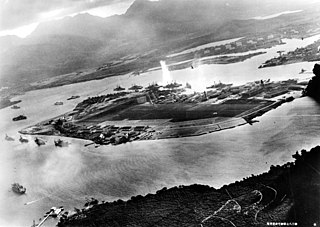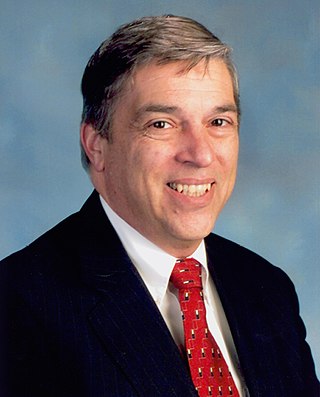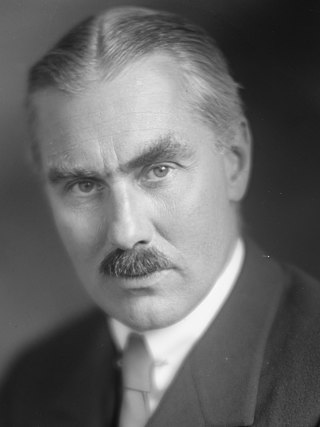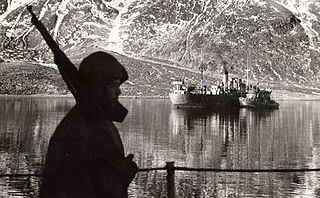Related Research Articles

John Edgar Hoover was an American law-enforcement administrator who served as the final Director of the Bureau of Investigation (BOI) and the first Director of the Federal Bureau of Investigation (FBI). President Calvin Coolidge first appointed Hoover as director of the BOI, the predecessor to the FBI, in 1924. After 11 years in the post, Hoover became instrumental in founding the FBI in June 1935, where he remained as director for an additional 37 years until his death in May 1972 – serving a total of 48 years leading both the BOI and the FBI and under eight Presidents.

The attack on Pearl Harbor was a surprise military strike by the Imperial Japanese Navy Air Service upon the United States against the American naval base at Pearl Harbor in Honolulu, Hawaii, just before 8:00 a.m. on Sunday, December 7, 1941. The United States was a neutral country at the time; the attack led the U.S. to formally enter World War II on the side of the Allies the following day. The Japanese military leadership referred to the attack as the Hawaii Operation and Operation AI, and as Operation Z during its planning.

Robert Philip Hanssen was an American Federal Bureau of Investigation (FBI) agent who spied for Soviet and Russian intelligence services against the United States from 1979 to 2001. His espionage was described by the Department of Justice as "possibly the worst intelligence disaster in U.S. history".

Richard Sorge was a German journalist and Soviet military intelligence officer who was active before and during World War II and worked undercover as a German journalist in both Nazi Germany and the Empire of Japan. His codename was "Ramsay" (Рамза́й). A number of famous personalities considered him one of the most accomplished spies.
Takeo Yoshikawa was a Japanese spy in Hawaii before the attack on Pearl Harbor on December 7, 1941.
Magic was an Allied cryptanalysis project during World War II. It involved the United States Army's Signals Intelligence Service (SIS) and the United States Navy's Communication Special Unit.
Shigetarō Shimada was an admiral in the Imperial Japanese Navy during World War II. He also served as Minister of the Navy. He was convicted of war crimes and sentenced to life imprisonment.

Gordon William Prange was the author of several World War II historical manuscripts which were published by his co-workers after his death in 1980. Prange was a professor of history at the University of Maryland from 1937 to 1980 with a break of nine years (1942–1951) of military service in the United States Navy during World War II, and in the postwar military occupation of Japan, when he was the Chief Historian on General Douglas MacArthur's staff. It was during this time that Prange collected material from and interviewed many Japanese military officers, enlisted men, and civilians, with the information later being used in the writing of his books. Several became New York Times bestsellers, including At Dawn We Slept, The Untold Story of Pearl Harbor and Miracle at Midway.
Various conspiracy theories allege that U.S. government officials had advance knowledge of Japan's December 7, 1941, attack on Pearl Harbor. Ever since the Japanese attack, there has been debate as to why and how the United States was caught off guard, and how much and when American officials knew of Japanese plans for an attack. In September 1944, John T. Flynn, a co-founder of the non-interventionist America First Committee, launched a Pearl Harbor counter-narrative when he published a 46-page booklet entitled The Truth about Pearl Harbor, arguing that Roosevelt and his inner circle had been plotting to provoke the Japanese into an attack on the U.S. and thus provide a reason to enter the war since January 1941. Flynn was a political opponent of Roosevelt, and had strongly criticised him for both his domestic and foreign policies. In 1944, a congressional investigation conducted by both major political parties provided little by way of vindication for his assertions, despite Flynn being chief investigator.

Joseph Clark Grew was an American career diplomat and Foreign Service officer. He is best known as the ambassador to Japan from 1932 to 1941 and as a high official in the State Department in Washington from 1944 to 1945. He opposed American hardliners, sought to avoid war, and helped to ensure the soft Japanese surrender in 1945 that enabled a peaceful American occupation of Japan after the war.

Alan Mowbray MM was an English stage and film actor who found success in Hollywood.

The American Theater was a theater of operations during World War II including all continental American territory, and extending 200 miles (320 km) into the ocean.

Bernard Julius Otto Kuehn and his family were spies in the employ of the Abwehr for Nazi Germany who had close ties to Propaganda Minister Joseph Goebbels. In 1935, Goebbels offered Kuehn a job working for Japanese intelligence in Hawaii; he accepted and moved his family to Honolulu on August 15, 1935. The family included Dr. Kuhn, 41 years old; his wife, Friedel; a daughter, Susie Ruth ; and her half-brother, Hans Joachim. Since all four members of the family were involved in the espionage they were dubbed the "8 eyed spy".

Commander Thomas Calloway Latimore was an American naval officer who was captain of USS Dobbin, and the governor of American Samoa. His disappearance in Hawaii, just months before the 7 December 1941 attack on Pearl Harbor, remains an unsolved mystery.

The Duquesne Spy Ring is the largest espionage case in the United States history that ended in convictions. A total of 33 members of a Nazi German espionage network, headed by Frederick "Fritz" Duquesne, were convicted after a lengthy investigation by the Federal Bureau of Investigation (FBI). Of those indicted, 19 pleaded guilty. The remaining 14 were brought to jury trial in Federal District Court, Brooklyn, New York, on September 3, 1941; all were found guilty on December 13, 1941. On January 2, 1942, the group members were sentenced to serve a total of over 300 years in prison.

Dušan "Duško" Popov was a Serbian double agent who served as part of the MI6 and Abwehr during World War II. He passed off disinformation to Germany as part of the Double-Cross System while working as an agent for the Yugoslav government-in-exile in London.

Little Tokyo, U.S.A. is a 1942 American film. Produced in the period just after the United States entered World War II, it was meant to alert Americans to the dangers of foreign agents. It is now controversial for its largely negative portrayal of Japanese-Americans.
William Minoru Hohri was an American political activist and the lead plaintiff in the National Council for Japanese American Redress lawsuit seeking monetary reparations for the internment of Japanese Americans during World War II. He was sent to the Manzanar concentration camp with his family after the attack on Pearl Harbor triggered the United States' entry into the war. After leading the NCJAR's class action suit against the federal government, which was dismissed, Hohri's advocacy helped convince Congress to pass legislation that provided compensation to each surviving internee. The legislation, signed by President Ronald Reagan in 1988, included an apology to those sent to the camps.

Frederick Joseph Rutland, was a British pioneer of naval aviation. A decorated pilot in the First World War, he earned the nickname "Rutland of Jutland" for his exploits at the Battle of Jutland in 1916. He later worked for the Japanese and was interned by the British authorities during the Second World War.

Itaru Tachibana was a Japanese spy active in the United States.
References
- ↑ BEVERLY HILLS SPY | Kirkus Reviews.
- ↑ "Conservancy News Feed | Santa Monica Conservancy" . Retrieved February 18, 2024.
- ↑ "How overseas startups and Japanese companies should collaborate - Tokyo Consortium". 東京コンソーシアム -. January 25, 2023. Retrieved March 1, 2024.
- 1 2 Ohanesian, Liz (February 27, 2024). "How the 'Beverly Hills Spy' author discovered a real tale of wartime espionage". Orange County Register. Retrieved March 4, 2024.
- ↑ "Records Dissemination Section FOIA Log Report". Federal Bureau of Investigation Records Management Division. January 31, 2017. Retrieved March 1, 2024.
- ↑ Brewer, Robert Lee (February 15, 2024). "Ronald Drabkin: On New Historical Discoveries Leading to New Directions". Writer's Digest. Retrieved February 18, 2024.
- ↑ Abramovitch, Seth (January 6, 2022). "Beverly Hills Spy: How a WWII-Era James Bond Betrayed the Allies". The Hollywood Reporter. Retrieved February 16, 2024.
- ↑ Spindel, Barbara. "'Beverly Hills Spy' Review: Under the Palms, Spying for Japan". WSJ. Retrieved February 16, 2024.
- ↑ "Beverly Hills Spy: The Double-Agent War Hero Who Helped Japan Attack Pearl Harbor by Ronald Drabkin". www.publishersweekly.com. February 1, 2024. Retrieved March 4, 2024.